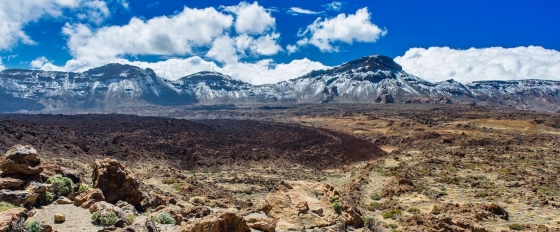Arrecife Temperatures: Monthly Averages and Year-Round Insights
On this page, we’ll explore temperature statistics for Arrecife in Canary Islands, Spain, including day and night variations and monthly averages. We’ll also compare the annual temperature to other cities in Spain.
Monthly Temperature Averages
Arrecife enjoys a stable climate with temperatures staying pretty much the same throughout the year. Average maximum daytime temperatures range from a comfortable 24°C in September, the warmest time of the year, to a pleasant 19°C during cooler months like February. At night, minimum temperatures typically average around 16°C during these months.
The chart below illustrates the average maximum day and minimum night temperatures in Arrecife by month:
The coldest temperatures are usually recorded between 4 AM and 6 AM, while the hottest temperatures occur near 3 PM, at the peak of the sun's warmth. September, the city’s warmest month, receives 246 hours of sunshine.
The chart below shows the average temperature throughout the year:
February, the city’s coldest month, sees about 17 mm of rainfall spread over roughly 3 days. It records 200 hours of sunshine of sunshine.
Annual Temperatures in Spain Compared
The map below shows the annual temperature across Spain. You can also select the different months in case you are interested in a specific month.
 very warm
very warm
 warm
warm
 pleasant
pleasant
 moderate
moderate
 cold
cold
 very cold
very cold
Arrecife Temperatures Compared World Wide
Arrecife’s average annual maximum temperature is 21°C. Let’s compare this with some popular tourist destinations:
Athens, Greece, experiences an average annual temperature of 23°C, with hot summers and mild winters typical of a Mediterranean climate.
In contrast, in Oslo, Norway, the average annual temperature is significantly lower at 10°C, with mild summers and cold winters.
The climate in San Francisco, USA, is mild, with an average annual temperature of 19°C and minimal seasonal variation.
Melbourne, Australia, has a slightly cooler climate, with an average annual temperature of 20°C.
How does the temperature feel?
Humidity is an essential factor in how you experience temperature. When a warm period is accompanied by high humidity, it results in a higher perceived temperature. This is especially true when temperatures exceed 25°C, as it can cause greater discomfort.
In Arrecife, during the coolest month, February, you will experience 68% humidity, which is considered high. This is accompanied by an average maximum temperature of 19°C. In the warmest month, September, the humidity is 70% combined with an average maximum temperature of 24°C, which creates a high-feel temperature. Explore our detailed page on humidity levels for further details.
How are these Temperatures Measured?
Generally, temperature data depicting climate is usually given over a 30-year average in order to reduce short-term fluctuations and reveal better long-term trends in climate conditions.
This temperature data is taken from land-based thermometers, ocean buoys, ships, and satellites. These measurements are transmitted to weather stations and climate centers around the globe where they are processed, averaged, and analyzed in order to monitor the trends and create climate models.
Global Warming and Its Effects
Climate change is affecting worldwide temperatures, including in Arrecife. It has massive impacts on both local and global levels:
- Global Temperature Rise: The average global land and sea temperatures have risen by about 1.2°C since pre-industrial times.
-
Local Impacts: Most regions of the world are witnessing warmer winters with fewer frost and snowfall days. The global frequency and severity of heatwaves have increased. For example, Europe's summers of 2018, 2019, and 2020 all broke records. Summers are also becoming drier; however, during winter, inland regions have experienced increased rainfall. This has caused elevated river levels and more cases of flooding.
Many countries are experiencing earlier springs and later autumns. This is why some bird species have shifted their migration dates.
For more detailed information about Arrecife’s weather, including monthly rainfall, sunshine hours, and humidity levels, visit our Arrecife climate page.
Current temperature in Arrecife










